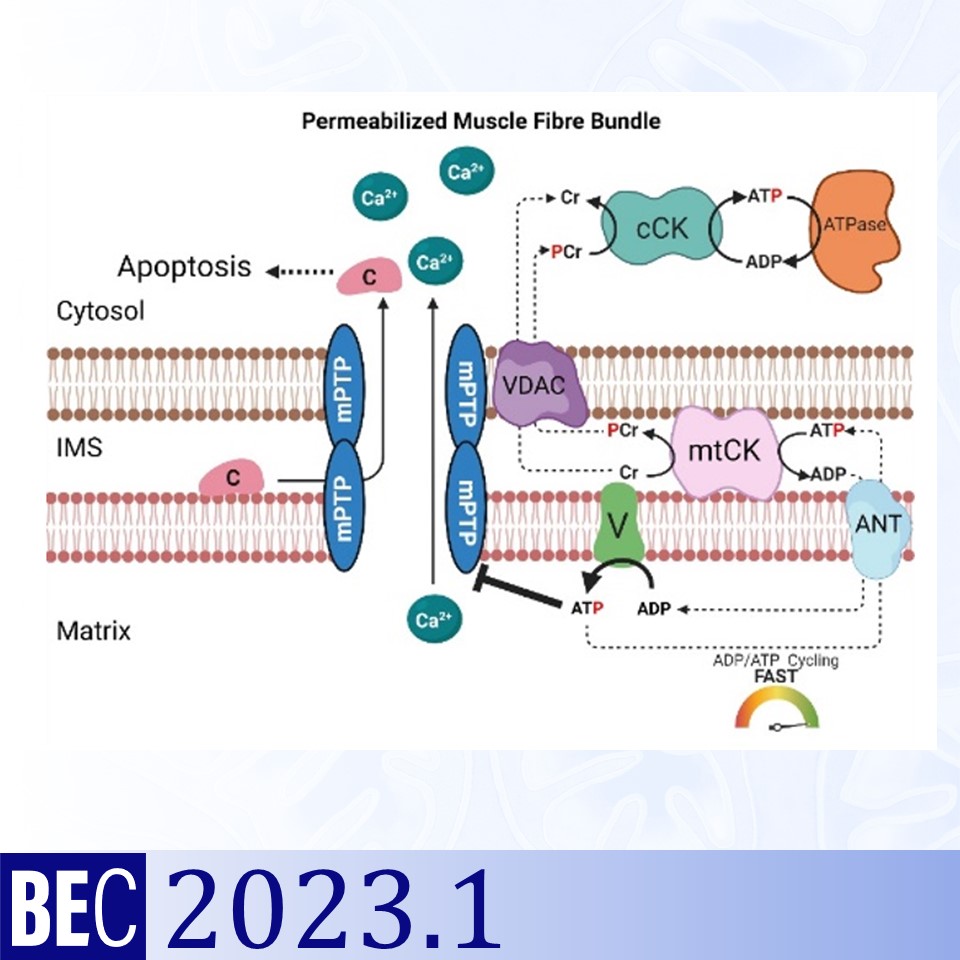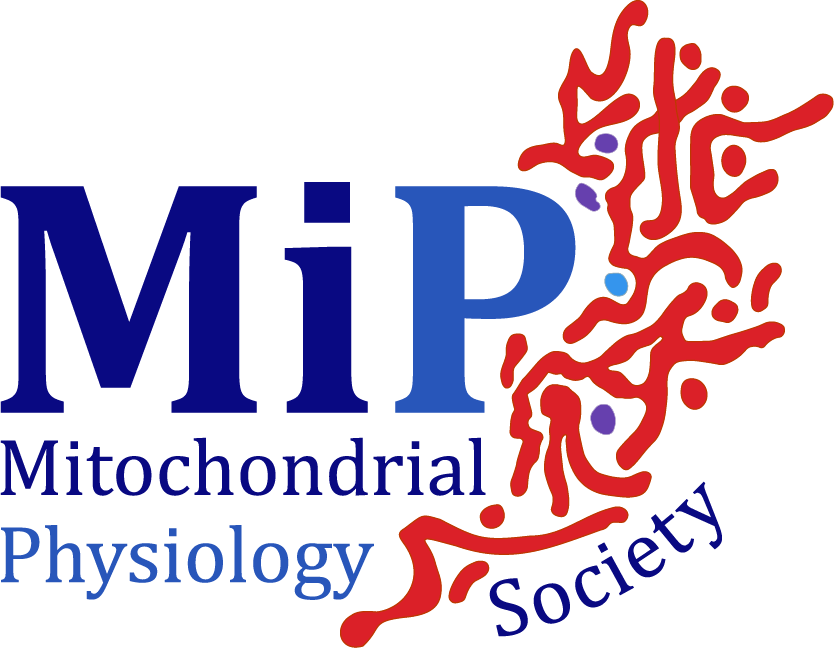The influence of adenylate cycling on mitochondrial calcium-induced permeability transition in permeabilized skeletal muscle fibers
DOI:
https://doi.org/10.26124/bec:2023-0001Keywords:
permeability transition pore, apoptosis, metabolism, bioenergetics, skeletal muscle, permeabilized muscle fibersAbstract
In isolated mitochondria, calcium-induced mitochondrial permeability transition pore (mtPTP) opening is thought to be regulated by adenylates but the relative effects of inherent adenylate cycling unique to permeabilized tissues is less explored. To determine the effect of adenylate cycling on calcium retention capacity (CRC) as an index of mt-permeability transition (mtPT) in permeabilized muscle fibers, separate in vitro assessments of CRC were compared in media that did not contain ADP or received exogenous ADP that naturally equilibrated with ATP through endogenous ATP-dependent pathways (ADP/ATP cycling). Comparisons were made to ADP combined with a hexokinase 2-deoxyglucose system recycling ATP back to ADP (ATP depletion). In mouse quadriceps, ADP increased CRC suggesting endogenous ADP-ATP cycling attenuates mtPT. ADP with hexokinase lowered CRC relative to ADP alone but had no effect compared to the absence of ADP (no adenylates). This finding suggests ADP does not alter calcium-induced mtPT and that its regulation by adenylates is specific to ATP in permeabilized mouse quadriceps fibers. Accelerating matrix ADP/ATP cycling with creatine and 5 mM ADP did not affect CRC but more than doubled CRC (desensitized mtPT) when the hexokinase clamp was included. CRC was similar in wildtype and D2.mdx mouse cardiac left ventricle fibers whether assessed with ADP and creatine (adenylate cycling) or without ADP, confirming adenylate-dependent and -independent control of mtPT is not altered in this model of myopathy. These results demonstrate the natural cycling of ADP with ATP in permeabilized muscle fibers attenuates mtPT, but not due to ADP itself. Repeating assessments with and without adenylate cycling can add further insight to experimental results.
Cite:
Bellissimo CA, Soendergaard S, Hughes MC, Ramos SV, Larsen S, Perry CGR (2022) The influence of adenylate cycling on mitochondrial calcium-induced permeability transition in permeabilized skeletal muscle fibers. Bioenerg Commun 2023.1. https://doi.org/10.26124/bec:2023-0001

Downloads
Additional Files
Published
License
Copyright (c) 2023 Catherine Anne Bellissimo, Stine Soendergaard, Meghan C Hughes, Sofhia V Ramos, Steen Larsen, Christopher GR Perry

This work is licensed under a Creative Commons Attribution-NonCommercial-NoDerivatives 4.0 International License.



